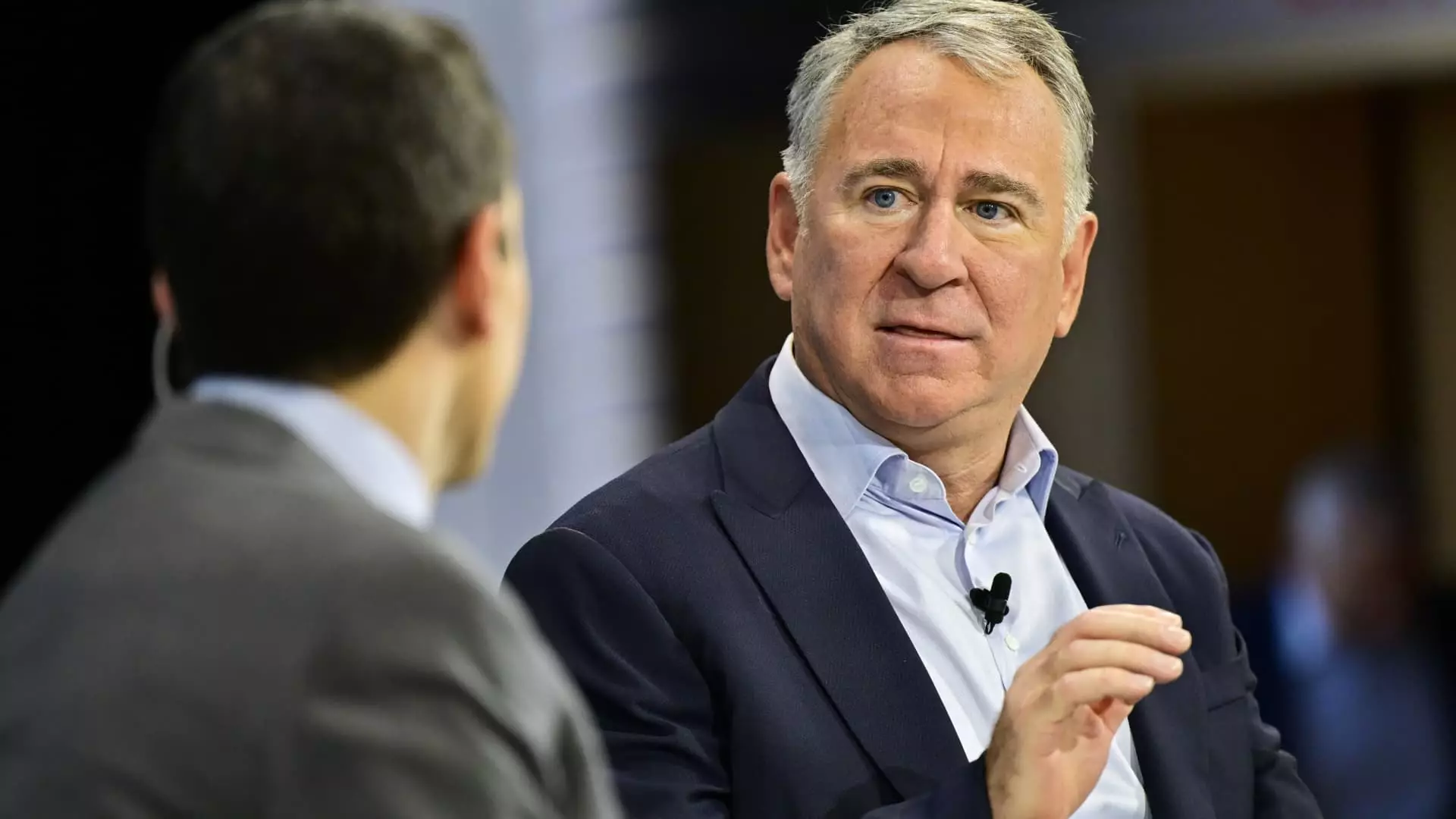In January, Ken Griffin’s flagship hedge fund, Citadel, managed to achieve modest returns despite experiencing significant market volatility. According to sources familiar with the hedge fund’s performance, the Wellington fund, which employs a multistrategy approach, recorded a gain of 1.4% for the month. This outcome followed an impressive return of 15.1% in 2023, suggesting a continuation of Citadel’s overall positive trajectory. Notably, all five underlying strategies of the fund, which encompass commodities, equities, fixed income, credit, and quantitative trading, showed favorable results during this tumultuous period.
Citadel’s diverse strategies played a crucial role in navigating the turbulent market landscape. The tactical trading fund, for instance, showed a 2.7% gain, mirroring the performance of the equities fund that operates on a long/short strategy. Furthermore, the firm’s global fixed-income fund also reported a respectable return of 1.9%. This diverse approach underscores Citadel’s adeptness at balancing risk and reward across various asset classes. With $65 billion in assets under management as of January, Citadel has established itself as a formidable player in the hedge fund landscape.
Market Challenges and External Influences
January was characterized by dramatic price fluctuations, reflecting investor concerns over the potential implications of President Trump’s protectionist policies. Specifically, the emergence of a Chinese artificial intelligence competitor, DeepSeek, triggered a profound sell-off in tech giants like Nvidia, which reverberated throughout the market. This turmoil illustrated how external factors could sharply influence market volatility, impacting even well-managed hedge funds. The S&P 500, despite these challenges, gained 2.7% in January, building on a remarkable two-year performance that saw a combined increase of 53%—the best since the late 1990s.
As market conditions shifted, Ken Griffin voiced concerns regarding the implications of Trump’s proposed tariffs. He argued that while domestic companies might experience short-term advantages from weakened competition, the long-term effects could stifle overall productivity and competitiveness within the U.S. economy. Griffin’s perspective highlights an essential debate in the realm of economic policy; while protectionist measures may seem beneficial in the short term, they can lead to detrimental outcomes that undermine economic growth.
Citadel’s performance in January showcases the hedge fund’s resilience and strategic acumen amidst significant market uncertainty. As Ken Griffin continues to advocate for a balanced economic approach, Citadel remains well-positioned to adapt to evolving market conditions. This blend of strategic diversity, coupled with Griffin’s economic insights, positions Citadel not only as a leader in hedge fund management but also as a critical voice in the broader economic discourse. As investors navigate a rapidly changing landscape, Citadel’s strategies may serve as a benchmark for balancing risk and opportunity in turbulent times.

